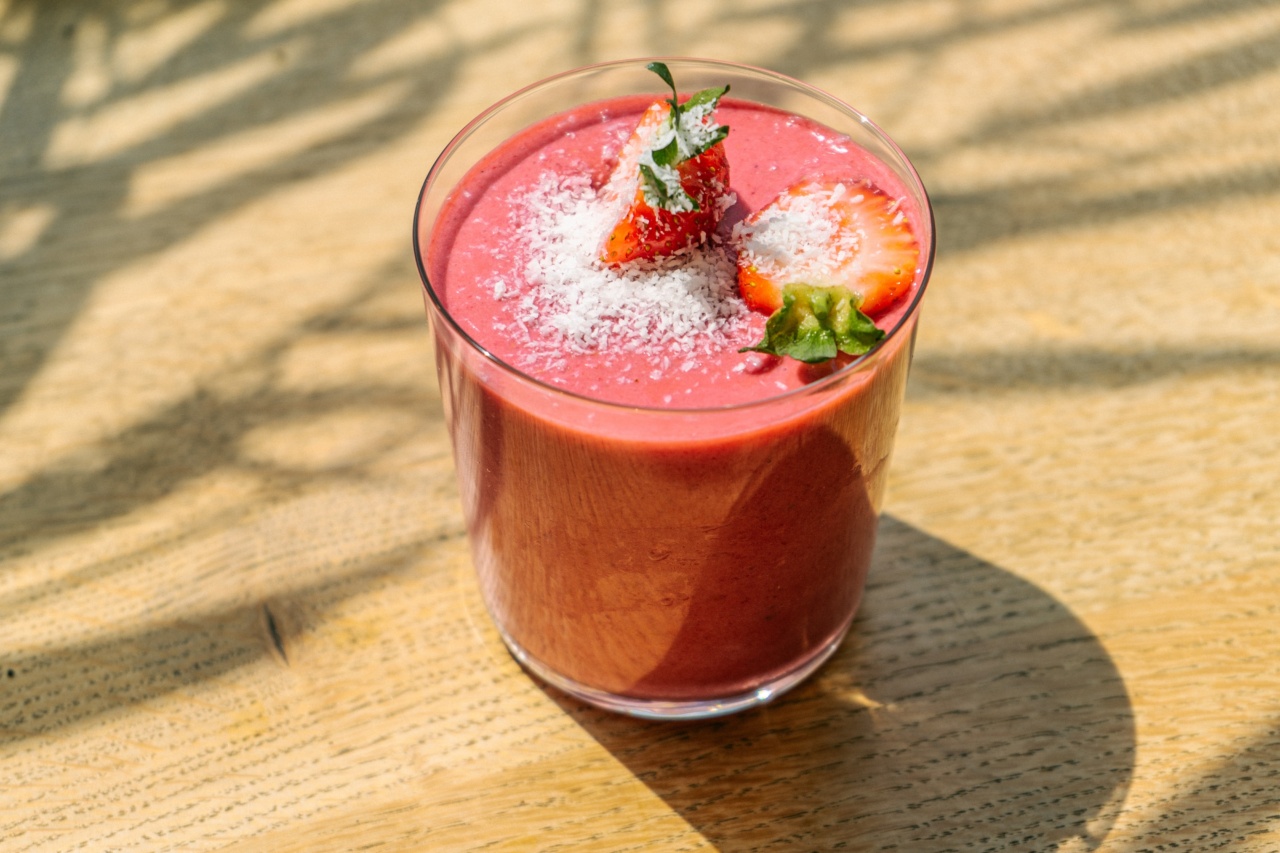Maintaining a nutritious diet is essential for leading a healthy lifestyle. However, many people believe that a nutritious diet means cutting out all sources of sweetness.
While it is true that excessive consumption of sugary foods can be harmful, there are ways to include sweetness in a nutritious diet without compromising on health. In this article, we will explore various strategies and food options that can help you enjoy the perfect balance of flavor and health.
The Role of Sweetness in Our Diet
Sweetness is a fundamental taste that humans are naturally drawn to. It is no surprise that many of us have a sweet tooth. However, it is important to understand the role of sweetness in our diet and how it can affect our health.
Our bodies need a certain amount of natural sugars to function properly. They provide energy, help with brain function, and fulfill our cravings. However, it’s crucial to make smart choices and find healthier alternatives to processed sugars.
Choose Natural Sweeteners
When it comes to adding sweetness to your diet, it’s essential to choose natural sweeteners over refined sugars.
Natural sweeteners offer more nutritional value and often have a lower glycemic index, meaning they don’t cause a rapid spike in blood sugar levels. Some excellent natural sweeteners to consider include:.
1. Honey
Honey is not only delicious but also packed with antioxidants and minerals. It can be a perfect addition to your morning oatmeal or as a topping for a bowl of fresh fruits.
However, it’s important to use raw and unprocessed honey to reap its maximum health benefits.
2. Maple Syrup
Maple syrup is a natural sweetener extracted from the sap of maple trees. It contains essential nutrients like manganese, zinc, and calcium.
Opt for pure, organic maple syrup, and drizzle it over pancakes, yogurt, or use it as a glaze for roasted vegetables.
3. Dates
Dates are not only sweet but also rich in fiber and various vitamins and minerals. They can be used as a natural sweetener in smoothies, energy balls, or even in homemade granola bars.
4. Stevia
Stevia is a plant-based sweetener that does not affect blood sugar levels. It is an excellent alternative for individuals with diabetes or those who are looking for zero-calorie natural sweeteners.
However, it’s important to choose pure stevia extract rather than processed versions that may contain other added ingredients.
5. Fresh Fruits
Fresh fruits are nature’s way of offering sweetness along with essential vitamins, minerals, and fiber. Incorporate a variety of fruits like berries, oranges, apples, and grapes into your diet.
Enjoy them on their own or add them to smoothies, salads, or even stir-fries for a touch of natural sweetness.
Include Sweet Vegetables
Did you know that certain vegetables offer natural sweetness as well? Adding these sweet vegetables to your diet can provide a range of flavors while keeping your meals nutritious. Here are some sweet vegetables to consider:.
1. Carrots
Carrots are not only crunchy and vibrant but also contain natural sugars. They can be enjoyed raw as a snack, grated into salads, or even roasted as a side dish.
2. Sweet Potatoes
Sweet potatoes are a nutritional powerhouse. They are high in fiber, vitamins A and C, and potassium. Roast them, mash them, or turn them into tasty baked fries to introduce a touch of natural sweetness to your meals.
3. Beets
Beets have a unique earthy sweetness that can be delicious when roasted, grated into salads, or even juiced. They are also packed with antioxidants and dietary fiber, making them a fantastic addition to your diet.
4. Peppers
Bell peppers, especially red and yellow varieties, provide a mild natural sweetness while offering essential vitamins and minerals. Add them to stir-fries, salads, or use them as a crunchy snack with some hummus.
Experiment with Natural Sweet Spices
Adding natural sweet spices to your meals can elevate their flavor profile without resorting to processed sugars. Here are some sweet spices that you can experiment with:.
1. Cinnamon
Cinnamon adds warmth and a subtle sweetness to dishes. Sprinkle it on your morning coffee, oatmeal, or even savory dishes like roasted vegetables or stews for a balancing touch of sweetness.
2. Nutmeg
Nutmeg has a slightly sweet and nutty flavor. It pairs well with both sweet and savory dishes. You can use it in baking, smoothies, or sprinkle it on top of seasonal fruits for an extra burst of flavor.
3. Cardamom
Cardamom has a unique and intense sweet flavor. It is commonly used in Indian cuisine and works well in desserts, baked goods, and even tea. Adding a pinch of cardamom to your dishes can create a delicious surprise for your taste buds.
Indulge Mindfully
While incorporating natural sweetness into your diet is crucial, it’s still necessary to practice mindful indulgence. Moderation is the key when it comes to enjoying sweet treats.
Instead of completely cutting out desserts or sugary snacks, try to savor them in smaller portions and less frequently. By being conscious of your choices, you can strike a balance between satisfying your sweet cravings and maintaining a nutritious diet.
Conclusion
Including sweetness in a nutritious diet is entirely possible when you opt for natural sources and make mindful choices. Choose natural sweeteners like honey, maple syrup, dates, and stevia.
Incorporate sweet fruits and vegetables into your meals, and experiment with natural sweet spices to enhance flavors. Remember, balance and moderation are the key factors in enjoying sweetness without compromising your health. So go ahead, embrace the sweetness while nourishing your body with wholesome foods.






























